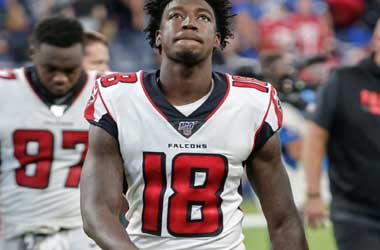
Mobile sports betting may soon be finding its way to Rhode Island. A bill to allow for mobile sports wagering in the state cleared its first legislative obstacle and is now headed for a floor vote.
On Thursday, February 7, a state Senate committee voted unanimously to approve the bill. A vote on the Senate floor could happen as soon as next week.
Democratic Senate President Dominick Ruggerio introduced the bill, along with House Speaker Nicholas Mattiello, to enable the creation of an app for people to access sports betting offerings at Twin River Casino from anywhere in Rhode Island.
One main reason for the bill is to not only increase revenue in the state but to address the long lines at the casino betting windows.
We want to generate revenue and we want to make sure people have a good experience and come back
WPRI
Governor Gina Raimondo’s proposed state budget is counting on $30 million from sports betting, $3 million of which comes from new revenue from mobile gambling. The following fiscal year, which begins on July 1, the state estimates that mobile betting would bring in $8.5 million, mainly because more sports bets are placed in the second half of the calendar year.
Rhode Island’s sports betting law gives the state 51% of the revenue generated.
If authorized, the state lottery expects it to take about six months to get mobile gambling up and running in the state. Rhode Island is currently the only New England state that allows sports betting.
By offering mobile betting inside state lines, the potential for bettors crossing over from Massachusetts and Connecticut to place bets in Rhode Island is more likely.
One concern about mobile gaming that many states have been encountering, is problem gamblers. With 24 hour access to sports betting available with a mobile or online platform, problem gamblers have even more opportunity to indulge in the activity.
At a House Finance Committee this week, Lincoln resident John Mongelli urged the panel to set aside money to help problem gamblers, mainly if they do choose to expand access to gaming to mobile phones.
The closer you are to a place of gambling, the more possibility you’re going to gamble, It cannot get any closer than a cell phone in your pocket to gamble 24 hours. Here it is, I don’t even have to leave my bed.
Division of Lottery Administrator Gerald Aubin said that the state has hired a full-time problem gambling coordinator and is under contract with the United Way to answer a 24/7 hotline. Callers are then referred to treatment centers and the state will pay for treatment if the person does not have insurance coverage.
There is no limit, no cap on how much we will pay to address this problem
Mattiello said he though problem gamblers would be the ones more inclined to drive to the casinos in Lincoln and Tiverton.
I think if you’ve got a gambling addiction, you’re going to be the individual that probably drives out to Twin River versus the casual user who might just do it because it’s accessible on the phone
Mattiello said in an interview with Eyewitness News.
It could be a concern, gambling is always a concern. But it’s an activity that is legal, that has proliferated our society and therefore I hope our citizens enjoy it.
The program manager at Rhode Island’s Problem Gambling Services, Nancy Murray, says about 1-2% of the population is affected by problem gambling. Murray said the organization helps about 35 people per month, and since the start of sports betting in November, there has been no increase in calls.
The bill would require participants to register for an account in person at one of the state’s two casinos before having access to the app. This would allow for casinos to check IDs and run names through their database of problem gambler who are excluded from gaming.
If Rhode Island were to legalize mobile sports betting, DraftKings plans to submit a bid to become the mobile app vendor, according to attorney Julie Pearlman. Pearlman testified that the company wants to eliminate the in-person registration requirement of the bill because it could limit access to the new legal gaming option.
People aren’t going to want to go to the casino to register
She suggested giving vendors a larger share of revenue of mobile gaming, up to 42%. That would leave Twin River with only 7% and the state would remain at 51%.
For the mobile operator to market and attract the customers. There’s a lot of costs associated with that so that would offset that cost.






